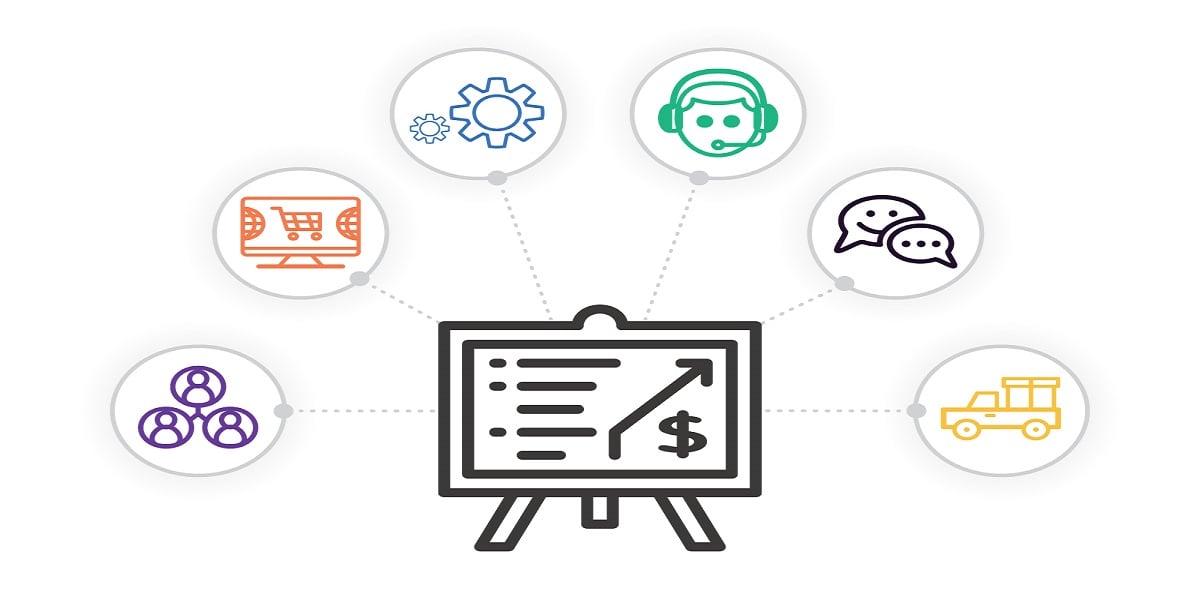How Are Tech Integrations Making ERP Systems More Intelligent?
- By Nishant Joshi
- 24-05-2022
- Technology

Enterprise Resource Planning (ERP) systems are changing the ways companies across industries function. They increase efficiency, improve productivity, boost team collaboration, and cut operational costs. Moreover, they also play a crucial role in managing excellent relations with vendors, suppliers, and distributors and building robust and long-lasting customer relationships.
This article will shed light on how new tech integrations, including IR 4.0 technologies like AI and machine learning are helping ERP systems to become more intelligent.
1. Better forecasting
The primary benefits of forecasting include setting benchmarks for monitoring business performance while reducing any uncertainties in the process. And AI and ML-based algorithms play a pivotal role in improving the quality of forecasts.
As a result, AI-enabled ERP systems play a massive role in allowing companies to improve their forecasts significantly. They are specifically designed to fill the gap between predicted and actual requirements, such as cash flow deficiency, workforce shortfall, raw material shortage, mismanagement of delivery vehicles, etc.
AI-enabled ERP systems cull valuable insights from a large volume of data increasing forecast efficiency. It also helps minimize the risk of loss from wastage due to overproduction or underproduction.
2. Boosting process efficiency
Every company wants to increase its efficiency. And this is where AI-enabled ERP software excels. It analyzes a company's historical data to identify the most effective methods and shortest workflow paths to finish a task at the earliest.
Another benefit is that when humans perform repetitive and manual tasks, they commit several errors. And human-induced errors, if unchecked, can cause massive losses. On the other hand, AI-enabled ERP systems perform trivial tasks instantly without any errors. This way, companies can employ their workforce on mission-critical tasks that require creativity and intelligence.
AI-powered ERP systems also enable team collaboration by integrating different data silos. This way, business stakeholders can create, edit, access, and share business-critical information across departments, improving process efficiency.
3. Make better decisions
Businesses need to critically observe the following points periodically:
Real-time inventory status and reordering raw materials if their quantity falls below the set threshold.
Analyzing changing market conditions and customer preferences.
Real-time path for delivery vehicles.
Forecasting the impact of seasons, war, and natural calamities on customer choice.
Identifying products that customers are most likely to purchase.
Monitoring overperforming and underperforming sales representatives.
Recognizing bottlenecks in the manufacturing process.
AI-enabled ERP systems streamline various business functions and processes, making the organization more agile and competent in making high-level decisions.
4. Generating customized reports
Generating visually appealing and simple-to-understand customized reports play a substantial role from a business point of view.
AI-powered ERP systems excel in this field because they:
Collect data from multiple sources, reducing human-induced errors and allowing the workforce to focus on mission-critical tasks.
Create more accurate and timely reports.
Eliminate duplicate errors.
Allow managers to monitor real-time employee performance.
Enable employees to read and understand data the way they want to.
Help the senior management make better and timely analytical decisions, enhancing ROI and driving business growth.
Locate specific information quickly and easily.
Therefore, AI-powered ERP software help generate customized business reports that provide valuable insights and help make better decisions.
5. Improve supply chain activities
Supply chain is a crucial business activity that starts from the inflow of raw materials, manufacturing of finished products, quality inspection of manufactured goods, and ends when the end consumer receives the final product.
A bottleneck anywhere in the supply chain can significantly reduce the time-to-market, increase transportation costs, or raise raw material prices.
The following points explain how AI-powered ERP systems help companies across industries manage their supply chain activities:
Identify vendors that provide a significant discount on raw materials.
Keep an eye on any seasonal and geographical discounts.
Monitoring machine downtime and repairing/replacing machines that aren't functioning at their total capacity.
Ensuring finished products adhere to customer specifications through the quality inspection module.
Sharing least busy routes with delivery vehicles, lowering time-to-market.
Ensuring raw materials and finished products are perfectly stored in the inventory and warehouse, respectively.
Overseeing the process of loading finished products onto delivery trucks conveniently.
6. Managing the customer buying journey
Today, businesses need to maintain excellent customer relationships to continue selling their product. There is a high probability that a company's customer base will shrink if they don't offer the best service. And this is where AI-powered ERP systems come into the picture.
The Customer Relationship Management (CRM) module effectively manages the entire customer buying journey, from identifying ideal prospects to encouraging them to purchase their first product or subscribe to a service.
The following points give a better picture of the benefits of employing a CRM-enabled ERP software:
Identify the ideal prospect and segment them into various categories based on geographical, demographical, psychographic, and behavioral parameters.
Qualifying leads based on how inclined they are to purchase the company's products.
Sharing marketing collaterals, such as ebooks, guidebooks, articles, case studies, and whitepapers encourages the customer to make the final purchase.
Instant response to the issues customers register on the help portal.
Sending cold emails to dormant customers to regurgitate their interest.
Conclusion
Technology is improving rapidly. And companies across industries are employing advanced business management solutions, like ERP, CRM, and HRMS solutions to automate their business activities. These autonomous systems increase productivity, boost efficiency, increase team collaboration, and, most importantly, integrate data silos spread across different business departments. Moreover, building robust and long-lasting customer relationships and handholding them out of product-related challenges has become a POD (Point of Differentiation). If you fail to provide the best services to your customers, they won't hesitate to jump on your competitor's bandwagon.
So, if you are still not taking full advantage of these business management solutions, you should implement them at the earliest.


.jpg)
.jpg)
.jpg)
